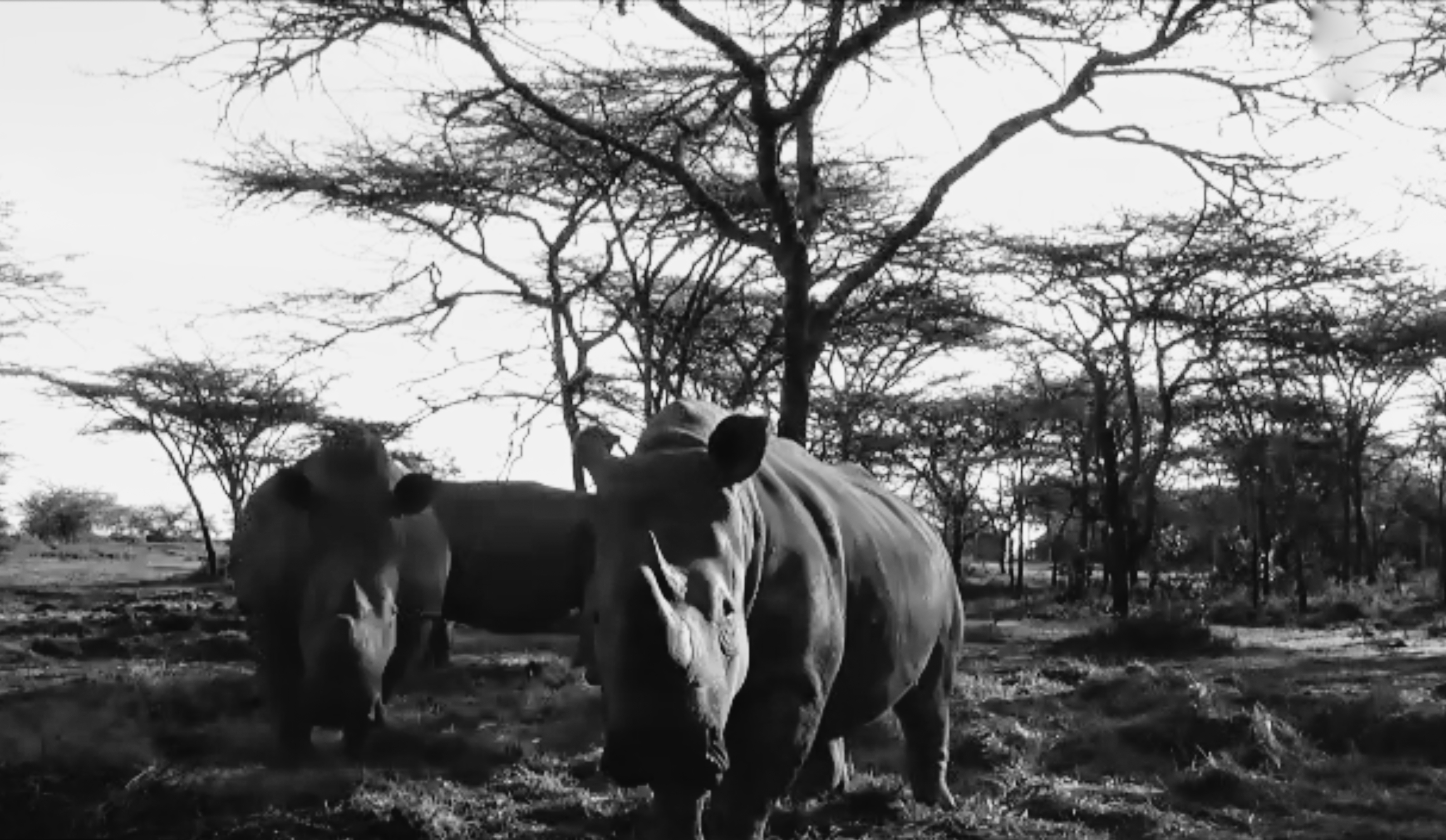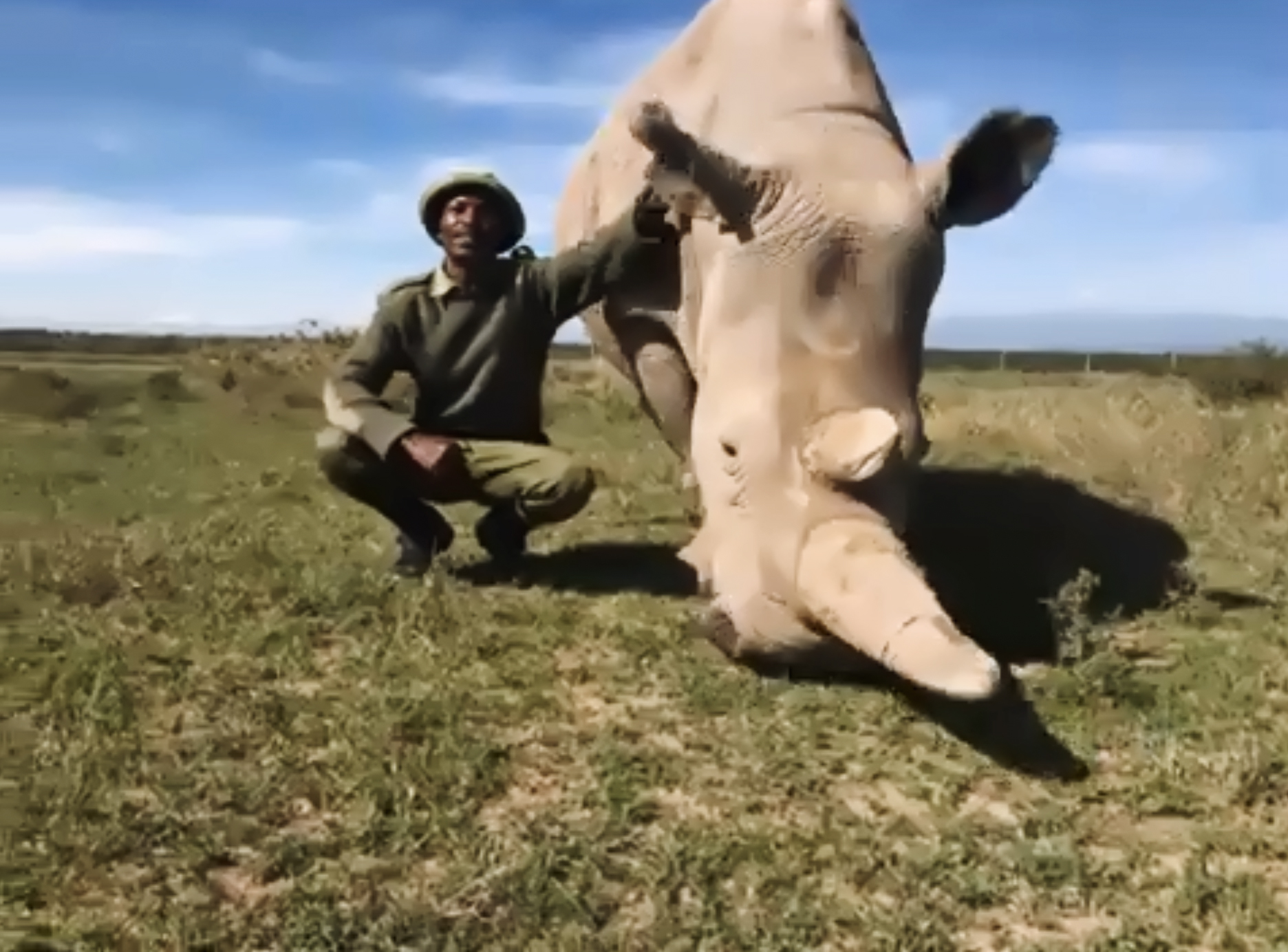Najin and Fatu are the two last remaining Northern White Rhinoceros on the earth. They were brought to the Ol Pejeta Conservancy in 2009 to accompany Sudan, the last remaining male Northern White Rhino, and to hopefully mate with him. The rhinos had been held in a confined area in a Czechlosovakian zoo, where they developed health problems from standing on concrete for long periods of time. When Najin and Fatu reached the Ol Pejeta Conservancy, they had to be taught how to be rhinos again as they had been stripped from their natural habitat for so long.
There are also wild populations of the endangered Black Rhinoceros and Southern White Rhinoceros in Ol Pejeta Conservancy. Rhinoceros are majestic and beautiful animals intertwined in a complex ecosystem. Sadly, their horns are desired in some cultures for medicine and can be valued for as much as $20,000USD/kilogram. The horn is made of keratin, the same substance as human fingernails and therefore there is no scientific evidence of any medicinal efficacy. Often people don’t realize that the whole animal is killed just for the horn. The loss of rhinoceros can alter the ecosystem, affecting countless other animals and plants. Conservation efforts at Ol Pejeta are preventing illegal hunting and helping to increase populations of these incredible keystone species.
Tragically in 2018, Sudan, the last male rhinoceros, died of health issues due to old age without siring any offspring. Before his passing, conservation workers and a team of scientists worked to collect and preserve his semen. Eggs had been collected from Najin and Fatu to be introduced to Sudan’s sperm for a final attempt at saving the species from extinction. As of 2022, fourteen successful embryos had been artificially created in hopes of rebuilding the population of the Northern White Rhinos.
Najin and Fatu are so rare and important that they can’t be allowed to roam freely in the conservancy. As such, they need rhino keepers that work primarily with them. In 2021, Jojo Thuita and Zachary Kipkuri, were the main rhino keepers for Najin and Fatu. Rhino Keepers watch over the two female rhinos, to provide them with security and food, and also maintain their health and safety. Part of their job is also to educate people. “Sharing the wonders and challenges of Rhino conservation with PA-MOJA during their visits to Ol Pejeta is so rewarding”, said Jojo.
Jojo and Zachery say that the most fulfilling part of their job is the opportunity to be allies to the rhinos and spread awareness about conservation. They are proud of the important role they play to support wildlife conservation in OPC.

